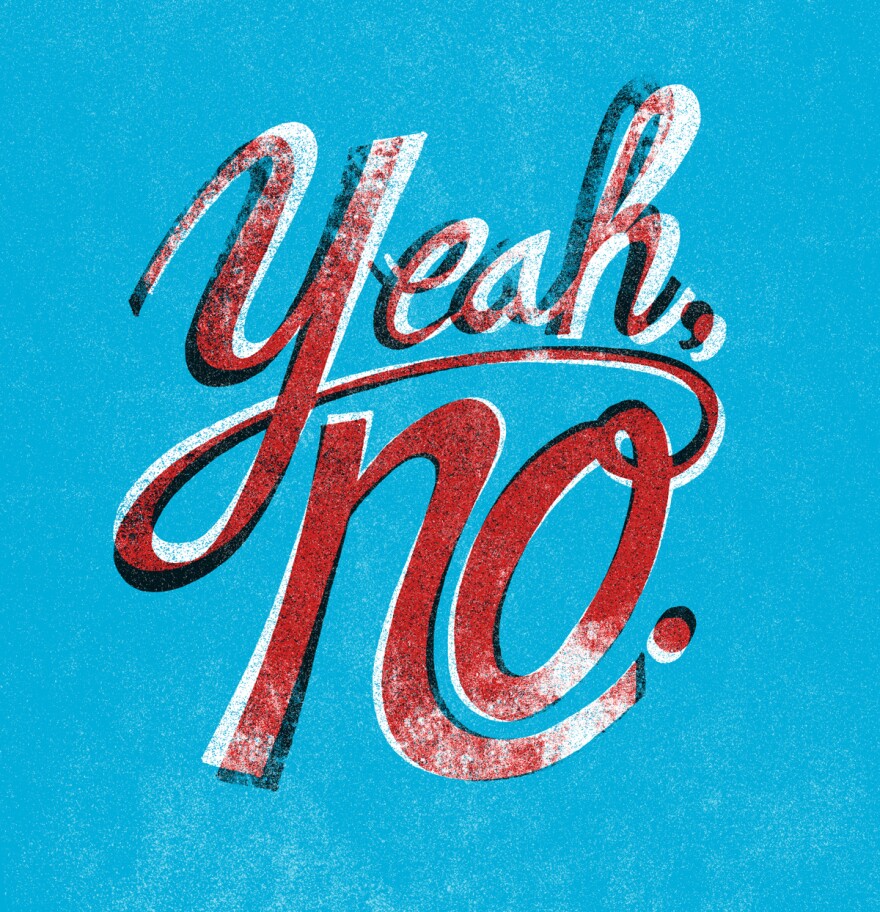On a recent trip with some of my guy friends, we got to discussing the phrase “yeah, no,” a usage that one of our party found particularly annoying.
My annoyed friend considered “yeah, no” a recent development, an inescapable but obnoxious bit of Millennial verbal detritus on par with “LOL” and vocal fry.
I’m not so sure.
“Yeah, no” goes back in my experience at the latest to the 1990s, and its parallels in Spanish and French, “sí, no,” and “oui, non,” are common.
A couple of interpretations of this phrase stand out from its usage.
The first is as a way to affirm what has been said by someone and then communicate an agreed-upon dissent.
For instance, I may say that the new office plan hasn’t really helped productivity all that much, and my colleague may respond “Yeah, no,” meaning “I agree. It’s not that great.”
Another way the phrase appears is to use the “yeah” to enhance a negation. This is like the backswing on a ball bat that gives the batter more momentum.
Here’s an example: I might ask the same colleague if her new hot sauce and yellow mustard diet is working out, and she might say “Yeah. No.”
Or, I could ask my by now beleaguered colleague if her new “take your abacus to work” initiative is gaining acceptance, and she might say “Yeah, no. I mean, a lot of people think it’s cool, and it has a great following on Instagram, but it turns out not many people have an abacus, so not many people can take theirs to work.”
So as annoying as the phrase may be, “yeah, no” is also emblematic of how expressive our language really is.


